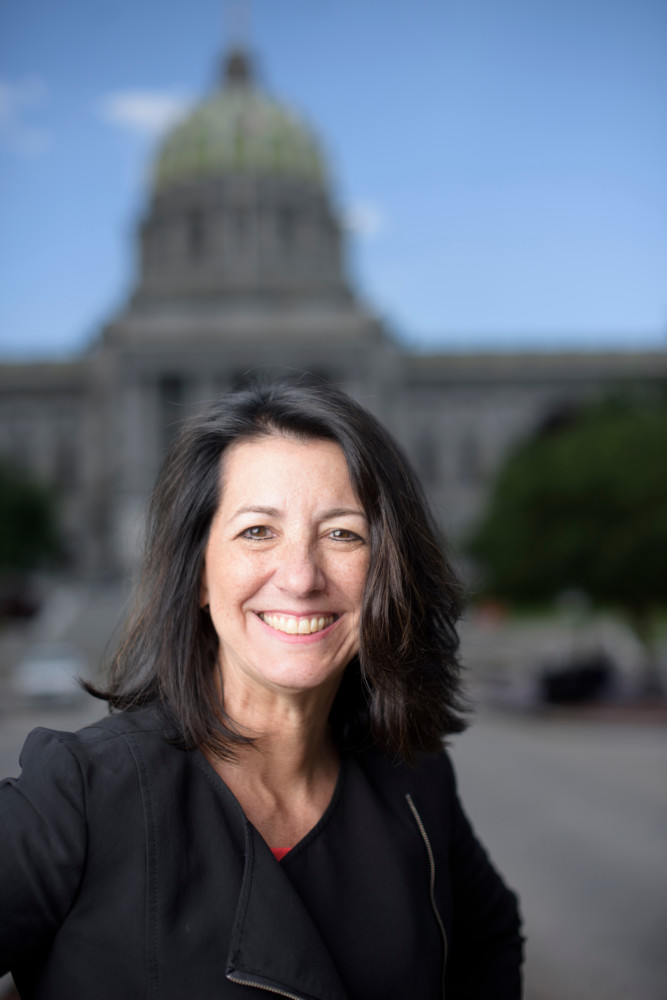By Jane M. Von Bergen
Philly.com
WWR Article Summary (tl;dr) Great Q&A with activist Diane Cornman-Levy on what is driving her to fight for the health, safety and welfare of women.
Philly.com
One look at Diane Cornman-Levy’s resume tells you that her new post as executive director of Women’s Way isn’t much of a stretch.
There’s the requisite set of credentials — executive positions in the nonprofit arena, and a couple of entrepreneurial nonprofits she established herself — all appropriate for the leadership of an enterprise that makes grants to organizations helping women: Women Against Abuse, Women Organized Against Rape, and Women’s Law Project, to name a few.
Two key credentials, however, don’t show up on her resume: survivor of attempted rape and a close relative of a rape victim.
What happened to Cornman-Levy’s family member is horrific, and Cornman-Levy wants to keep it private. The relative, badly traumatized, is fragile, but gaining strength, amid setbacks.
“Actually, doing this work and always doing work around social justice and gender equality has helped keep me sane,” said Cornman-Levy, 56. “It gives me passion, determination, resilience.”
Question: What happened to you?
A: It was 11 on a Sunday morning. I was going to get my mail at Brown University. This guy said, “I just got kicked out of my home.” He pulled me behind bushes, down to the ground. I just started screaming and kicking, and I managed to kick him in the balls and I got away. I’ve also worked with a lot of women that have been raped. I’ve done a lot of work with homeless women that didn’t have a choice but to get on the streets. I’ve worked with women coming out of prison that had been traumatized. I think this addiction epidemic is totally connected to trauma. Also, a lot of boys have been raped. That is really a hidden issue in this country.
Question: How does this impact you in this job?
A: It drives me. Frankly, at the state and federal level, there’s literally an attack on women, on choice, on reproductive health care. We have a president that says it’s OK to sexually assault women. It’s sending a message to boys and men that it’s OK, and to girls, that it’s OK if someone assaults you, especially someone who has power. So it gives me the constant reminder and energy to do this work when it gets really hard. It’s not my [relative] and me. It’s all the women I have met over the years.
Question: Well, lots of women voted for Donald Trump — and you met some of them last year when you ran, and lost, as a Democratic candidate for state representative in Delaware County.
A: During the campaign I knocked on over 7,500 doors. I talked to a lot of women who were never going to support Hillary Clinton. I always approached without judgment, just compassion and empathy. What are you struggling with and why do you think someone like Donald Trump versus Hillary Clinton is going to help you?
Question: What did you learn?
A: There’s this whole notion of feminism where they look at it as an elitist thing, like she was part of the elitist class. She’s going to break the glass ceiling, but they felt like she wasn’t connecting with working-class women. What are you going to do to bring jobs back for my husband? It was always about economics, because their salaries have gone down and their expenses have gone up and they feel stuck.
Question: How will you bring this knowledge to Women’s Way?
A: One of the things that has informed me for Women’s Way is we need to be very inclusive and very strategic about bringing organizations and women together across class, race, and ethnicity and to create a safe place to start having these hard conversations.
Question: Organizations such as Planned Parenthood and the American Civil Liberties Union have seen an uptick in donations since the election. Has Women’s Way?
A: We’re getting a lot of calls right now from people saying I want to become a member, I want to give.
Question: What are your funding priorities?
A: Women’s Way has an incredible legacy and history, which we are building on. We are restructuring to become the leader on women’s issues in this region. We also want to be more nimble and responsive to emerging needs and emergencies. In philanthropy, it’s hard for [funders] to respond quickly and adapt. We’d like to create a separate fund, an emergency fund.














































































































































































































































































































































































